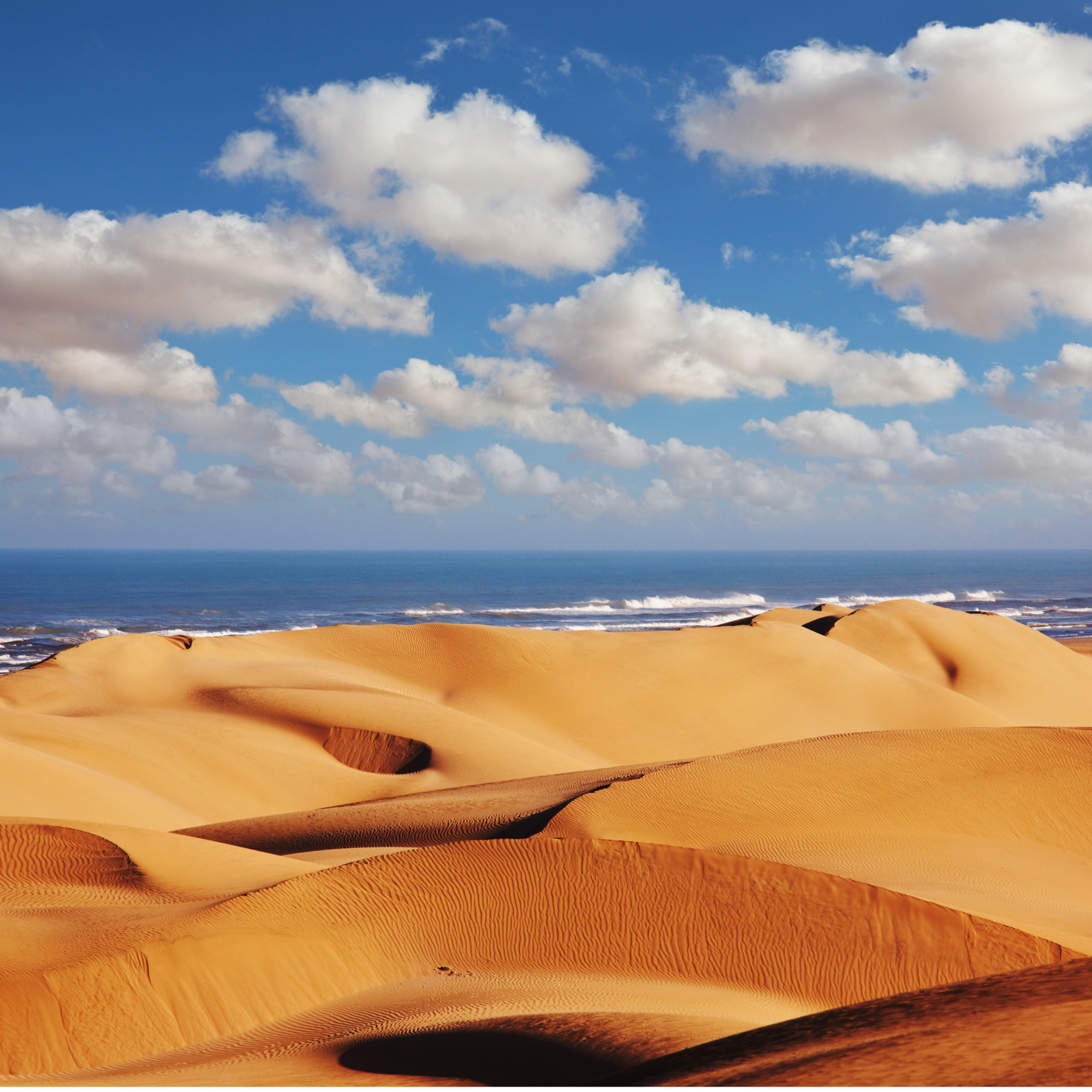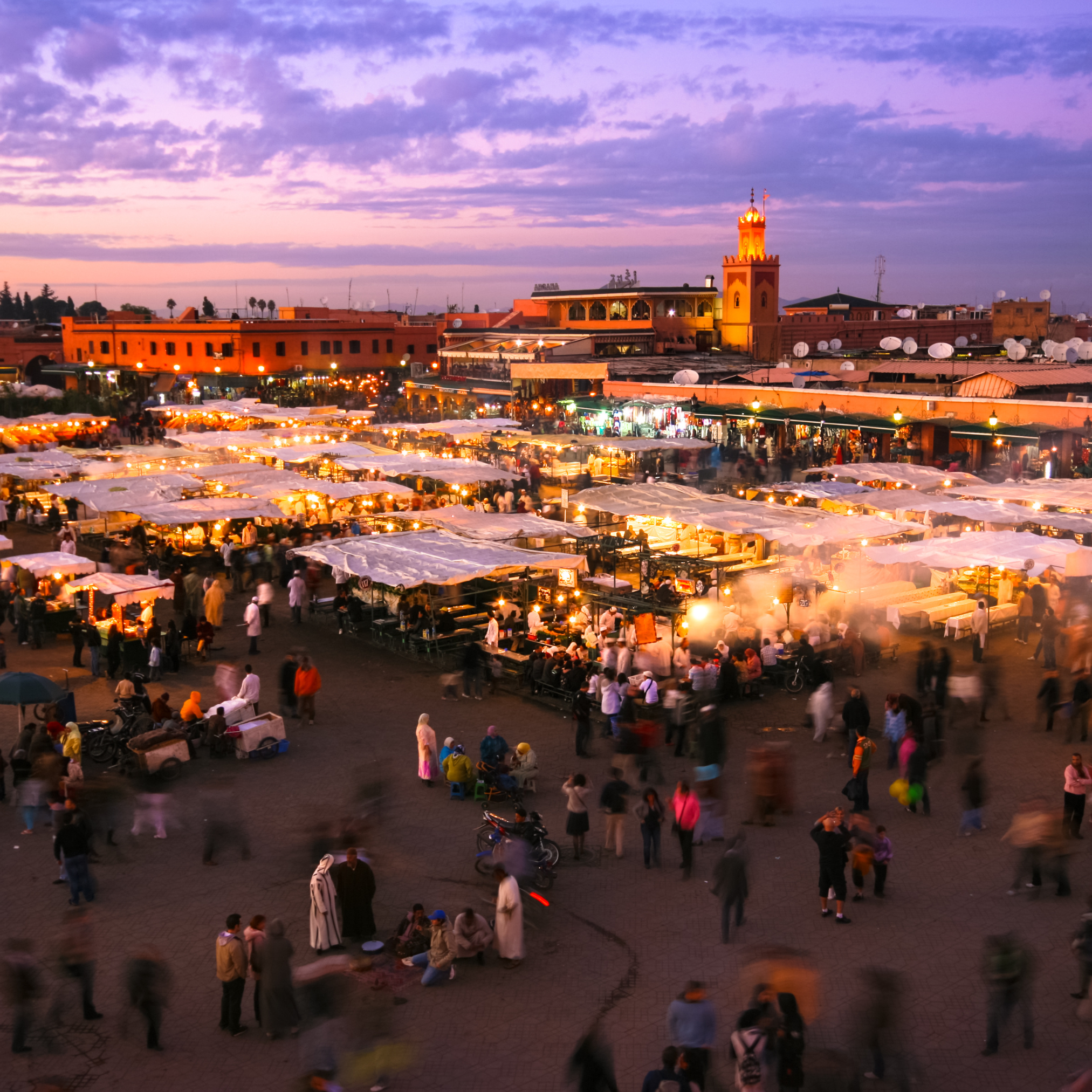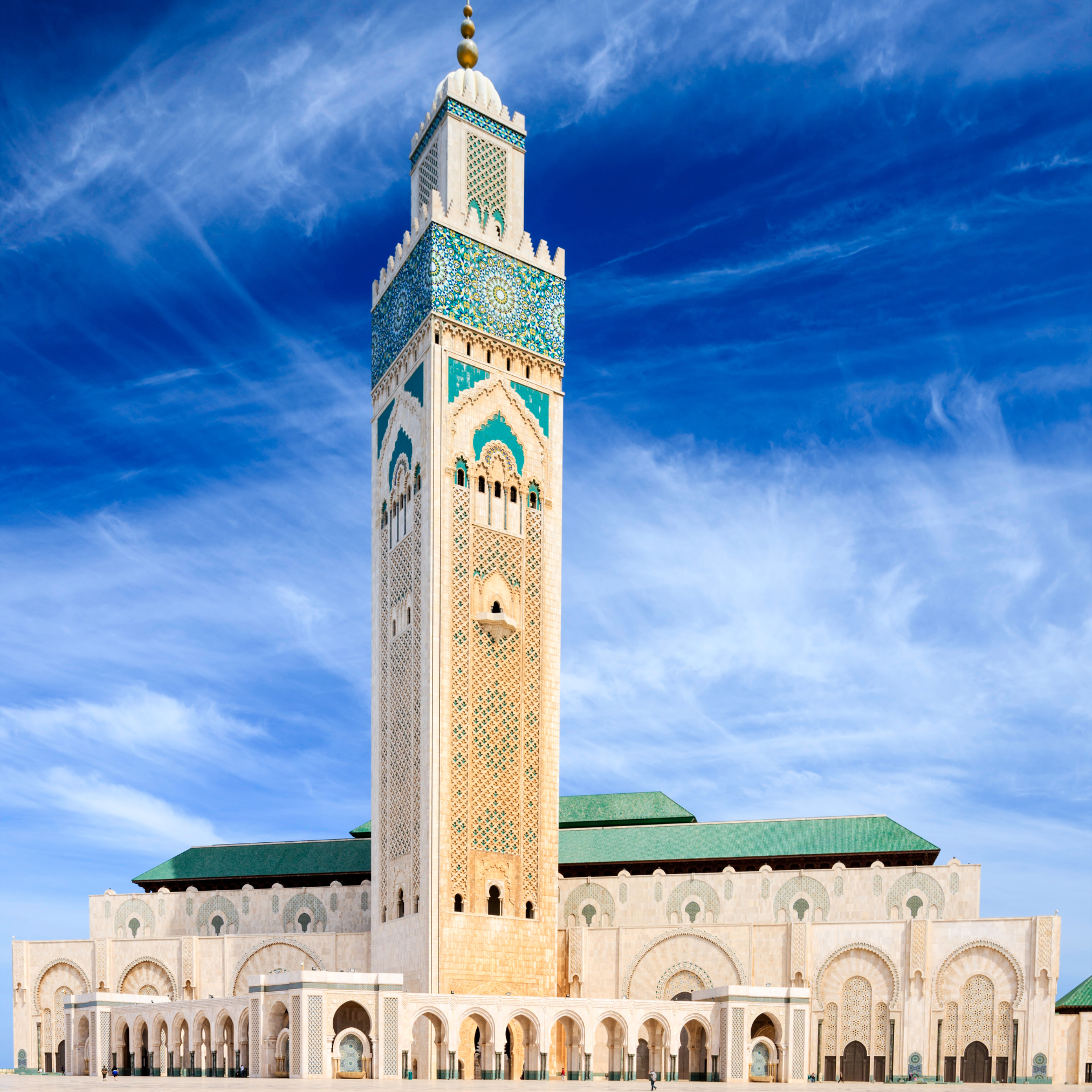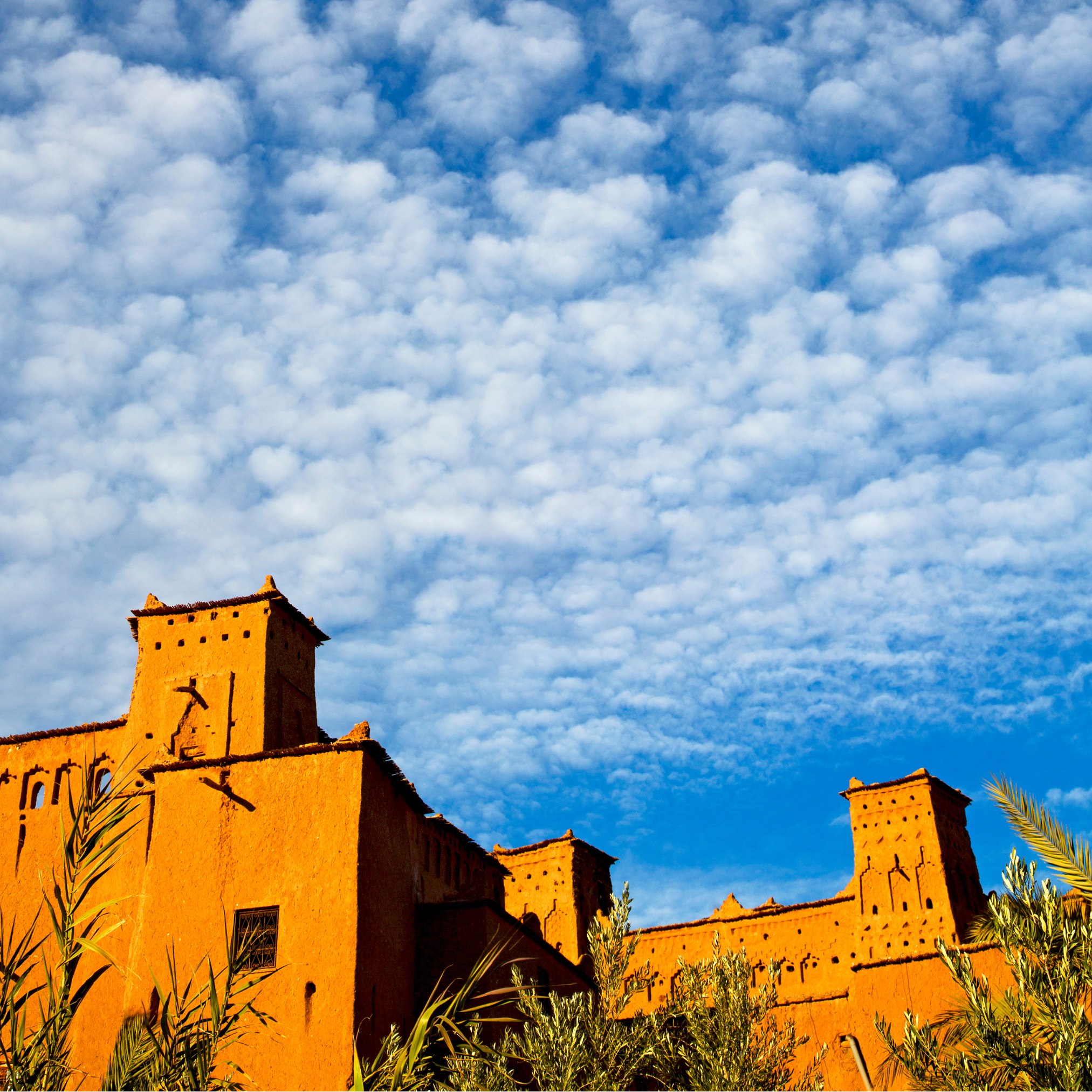Road Trips in Morocco: Essential Tips for Travelers
Is it difficult to drive in Morocco?
Driving in Morocco is not difficult. As long as you are an experienced driver and know the common traffic rules and signs in advance, you can easily drive in Morocco. However, due to the long distances between different cities in Morocco, traveling by driving the car by yourself may consume too much physical strength and experience, and the cost of returning a rented car in a different place is too high. Besides that, there are also many things to adapt to when driving in Morocco.
This article introduces a series of tips for self-driving tours in Morocco, including traffic conditions in Morocco, refueling in Morocco, and how to rent a car in Morocco, etc., to provide considerations for your Morocco travel plan. You can choose the most suitable way to travel in Morocco after reading this guide!
Road conditions in Morocco
1. Most roads are in good condition, and rural roads are relatively narrow, so please pay attention to the distance between cars.
2. There are good highways between the coastal areas and big cities in Morocco, such as from Casablanca to Essaouira and Casablanca to Marrakech, and the tolls are collected by section.
3. From Marrakech, you can enter the Atlas Mountains in central Morocco, all the way to the desert, then to Fez, and to Chefchaouen. This section of more than 1,000 kilometers is all mountain roads, and the speed can only reach 60km/h. Moreover, the mountain roads are winding, uphill and downhill, easy to slip, and there are a few falling rocks on rainy days.

4. The road from central Morocco to Western Sahara is more complicated. There are winding mountain roads, flat roads along the Atlantic Ocean, and deserts on both sides. It is still okay to drive during the day, but don't drive at night.
Highways in Morocco
Moroccan highways are all dual-lane, in good condition, usually with a maximum speed limit of 100 km/hour, and tolls are collected by section (only cash is accepted). Here are some tolls for some highway sections:
● Casablanca Airport-Casablanca: 6 Moroccan Dirhams
● Casablanca-Rabat: 23 Moroccan Dirhams
● Rabat-Meknes: 34 Moroccan Dirhams
● Marrakech-Casablanca: 80 Moroccan Dirhams
Traffic conditions in Morocco
The traffic conditions in Morocco are relatively complicated, especially in large cities such as Casablanca and Marrakech. Because of the large number of vehicles, the 1.1 billion roads are often under high load, and traffic jams are common.

In addition, there are tram systems in Casablanca and Rabat. Drivers driving in these two cities should pay special attention to the signal lights of tram operation to avoid accidents.
The driving style of Moroccan locals is very bold and casual. Therefore, you must be very careful when driving by yourself to avoid scratching your car due to other casual driving. Moreover, Moroccans rarely give way to pedestrians when driving, so pedestrians need to be extra careful when crossing the road.
How to refuel when driving in Morocco?
1. Gasoline prices in Morocco are lower than in Europe, but more expensive than in mainland China, and the closer you are to the desert, the more expensive it is.
2. The price of 1 liter of gasoline is about 13.7 Moroccan Dirhams per liter, and diesel is about 1% to 15% cheaper than gasoline.

3. There are gas stations in most towns, even in areas close to the desert, but if you drive long distances, make sure your tank is full.
4. Large gas stations usually accept credit cards, but small gas stations usually only accept cash.
The police you can't escape when driving in Morocco
The most annoying thing about driving in Morocco is that there are police everywhere. Before and after each town and on many roads, there are patrols and checkpoints that will stop you to check your documents, and almost all of them carry small portable speed cameras to measure your speed. Even if you follow the traffic rules and are not speeding, you will be stopped to check your driver's license and passport, vehicle registration and insurance, etc.
In Morocco, it is common for tourists to be "fined for speeding." The speeding fine is usually 400 Moroccan Dirhams, but if you offer to "pay immediately" 100 to 200 Moroccan Dirhams, they will let you go and will not report it. So, if you plan to drive in Morocco, please carry at least 200 Moroccan Dirhams in cash with you. If you are stopped by the police, please stay calm, show all your documents, try not to dispute what they say, and be willing to pay immediately in exchange for "sentence reduction."
Traffic rules in Morocco
1. Vehicles in Morocco drive on the right, the same as in China and most European and American countries.
2. At intersections, vehicles coming from the right have the right of way.
3. In general, you can only overtake from the left side of the vehicle.
4. When approaching a traffic light, please observe the surrounding road conditions first, and then drive slowly, because local drivers often ignore traffic signals.
5. The speed limit in the city center is 40 km/h, near the city center is 60 km/h, and the suburban roads are 80 km/h. The speed limit on the highway is 100 km/h. The speeding fine starts from 400 Moroccan dirhams. When you see the speed limit from 80 to 60 to 40, you should pay attention, because there will definitely be a 20 speed limit sign and a traffic police waiting for you not far ahead.
6. Road signs are only marked in French or Arabic.

7. Be careful of mopeds, bicycles and animals when driving at night.
8. One-way lanes are marked with white lines, and two-way lanes are marked with yellow lines.
9. Almost all regulatory, prohibitory, mandatory, hazard, directional and advisory signs follow the ISO standard (European) system. However, the parking sign is a standard red octagon, but it is only written in Arabic.

Morocco Parking Tips
Parking is another annoying thing about driving in Morocco, because no matter where you park, you have to pay a "parking fee". Street parking is common in Morocco, but almost all parking areas are guarded by "gardiens de voitures" (vehicle guardians) or illegal parking attendants wearing blue jackets. When you park, you will be asked to provide some change to guide you to park and help you look after the car when you are not there. Usually, a tip of 5 to 10 Moroccan Dirhams is enough.

Parking near tourist attractions is generally around 10 Moroccan dirhams.
Parking can be done for 1 to 2 hours in the parking meter area on the main road. The meter parking fee starts at 2 Moroccan dirhams. Parking is free on Sundays.
How to rent a car in Morocco?
Find a car rental company
To rent a car in Morocco, you can use Google Maps or search on the Internet to find a suitable car rental company. After negotiating the price and return method, go to the formalities and pick up the car.
Morocco car rental price
The price of renting a car in Morocco depends on the model of the car. It is generally 300 to 600 Moroccan dirhams per day. If the rental time is long, the rental will be cheaper. When renting a car, you need to pay all the rent and a deposit. The deposit depends on the model and the rental company, usually 5,000 Moroccan dirhams.
Morocco car rental requirements
To rent a car in Morocco, you must be at least 23 years old and have held your own driver's license for 2 years. When renting a car, you need to provide the original driver's license of your own country, the translation of your international driver's license, and a credit card with a certain limit in your name. However, the document requirements of different car rental companies may be different.
Precautions when picking up the car
1. Be sure to take photos or record videos! Take detailed photos! Including the bottom of the car door, the bumper behind the car and other details! If the vehicle itself has scratches, you must tell me in advance, including the amount of oil, it is best to take photos and record it, otherwise these will become controversial points when changing cars, causing you unnecessary trouble and a lot of trouble!
2. Leave the emergency contact number of the car rental company.
3. Simply familiarize yourself with the performance of the car.
4. Keep the relevant receipts for picking up the car and paying.
The above is the guide for self-driving tours in Morocco. It can be said that self-driving tours in Morocco are neither difficult nor easy. When traveling to Morocco, choosing public transportation is crowded and slow, which will inevitably make people very tired, so traveling by car is the first choice. Compared with private group chartered tours, although self-driving tours have greater freedom, drivers will be very tired, and when encountering police and parking problems, they may feel exhausted. Therefore, it is recommended that everyone consider their own situation and choose self-driving tours or group tours. The best choice is to choose one that suits them.
If you plan to customize your private Morocco journey, feel free to contact us for personalized tour experiences:
Email: contact@chrtours.com
WhatsApp: (+212) 713053383
Wechat: MLGred2016
You can refer to these itineraries for inspirations:
3-Day Sahara Adventure: Marrakech to Fes via Ait Benhaddou & Merzouga Desert
5-Day Journey through Northern Morocco: A Blend of History and Culture
7-Day Morocco Adventure: A Custom Journey from Marrakech
13-Day Moroccan Odyssey: A Custom Journey from Casablanca
Click here to explore more travel guides in Morocco: Travel Inspirations.












